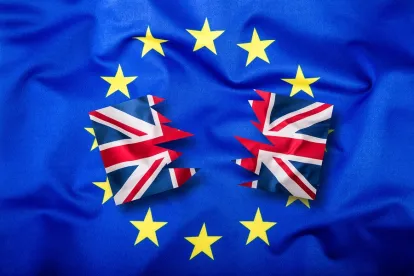With the UK now no longer part of the EU, and EU law ceasing to apply at the end of the current transitional period, the future application of many of the bloc’s laws and regulations in the UK (and if/how the UK will transpose them) is the subject of increased speculation, not least in the already complex area of sanctions law.
Some of that speculation was put to bed when on 6 July 2020 Foreign Secretary Dominic Raab placed before Parliament the Global Human Rights Sanctions Regulations 2020 (the Regulations) which provide for the freezing of funds and economic resources of certain persons, entities or bodies responsible for or involved in serious violations of human rights.
The Regulations, made under the UK Sanctions and Money Laundering Act 2018 (SAMLA), back up comments previously made by Foreign Secretary Raab concerning the UK’s intention to “bring into force a UK Magnitsky Law” to sanction those who commit human rights violations. They also expand the UK’s current roster of independent regimes under SAMLA which will supersede EU sanctions after the end of the “transition period” currently scheduled to end at 11 p.m. on 31 December 2020.
Unlike other new secondary legislation, including regimes in respect of Iran, Syria and Russia, which will not come into force until the end of the transition period, the Regulations are now in force.
The EU Position
As outlined in our previous GT Alert, in the EU the decisions to impose sanctions are taken by all 28 EU Member States. Initially a political decision, sanctions are then crystallised by EU regulations, which have direct effect in the EU Member States.
Enforcement is left to each Member State. In the UK, for example, sanctions are monitored, administered and enforced by the Office of Financial Sanctions Implementation (OFSI). OFSI issues guidance on the operation of sanctions in the UK, and penalties for violations are set out in both primary and secondary legislation.
SAMLA provides the UK with a mechanism to impose financial, immigration and trade sanctions, including a way for the individual or entity to which the sanction relates (the designated person) to request variation or revocation of the same.
What is meant by ‘Magnitsky Law’?
In 2009, a Russian tax advisor and lawyer named Sergei Magnitsky was discovered dead in his cell in a Moscow detention centre. Magnitsky had been arrested in 2008 and imprisoned following an investigation of his involvement in an extensive $230 million tax fraud with links to Russian public officials.
Reports and investigations following Magnitsky’s death prompted an international reaction. In 2012, the United States passed the Magnitsky Act which imposed asset freezes and travel bans on a list of Russian officials believed to have been implicated in Magnitsky’s death. U.S. law was then expanded to allow the imposition of sanctions on any individual anywhere for committing human rights violations or acts of significant corruption. In 2018, this power was used to freeze the assets of individuals suspected to have been involved in the killing of Saudi Arabian journalist Jamal Kashoggi, and it continues to be used to sanction both individuals and entities.
The rest of the world is catching up, with similar regimes already in place in Canada and a number of EU countries. In March 2019, the European Parliament adopted a resolution calling for a regime to be adopted at the EU level.
The UK has taken things in stages.
As its first step, it amended the existing definition of “unlawful conduct” in the Proceeds of Crime Act 2002 (POCA 2002) to include “conduct which constitutes, or is connected with, the commission of a gross human rights abuse of violation…” thus allowing (in theory) UK law enforcement to recover the proceeds of such conduct.
Secondly, when SAMLA was passing through the legislative process, an amendment was added to allow sanctions regulations to be made for the sole purpose of providing “accountability for or [to] be a deterrent to gross violations of human rights, or otherwise promote compliance with human rights law or respect for human rights...”.
Now, by introducing the Regulations, the UK has exercised the power afforded to it by that amendment, and it did so by targeting a total of 49 individuals and entities, 25 of which are Russian nationals involved in the mistreatment and death of Sergei Magnitsky plus 20 individuals involved in the death of Kamal Khashoggi. All 49 are now subject to an asset freeze.
In announcing the Regulations, Mr Raab confirmed his intention to work closely with the UK’s allies including the EU, Canada and the United States.
The United States expressed support for the Regulations. U.S. Secretary of State Mike Pompeo commended the UK’s “continued global leadership on the promotion and protection of Human Rights” and said that the introduction of the Regulations marks a “new era for UK sanctions policy and cooperation between the two countries” with the UK’s new powers complementing the efforts of the United States and Canada.
It remains to be seen if this new era of cooperation will result in the further expansion of the UK’s ability to impose sanctions in other areas. For example, the provisions of SAMLA have previously attracted criticism for their failure to permit the imposition of sanctions against public officials involved in acts of corruption – something U.S. law does permit.
What does this mean for your business?
Like the existing EU regime, the Regulations prohibit all persons subject to UK jurisdiction (including companies) from dealing with any individuals or entities the UK government chooses to target, whether or not the conduct takes place in the UK.
This will add an extra layer of complexity to the already challenging world of sanctions compliance. With a number of countries having already imposed their own Magnitsky laws and others looking to follow suit, multinational organisations and those breaking into new markets may well find that they need to assess a number of country-specific regimes to identify risk areas.
With varying but potentially severe penalties for non-compliance, not to mention possible reputational damage, companies entering new markets may wish to put sanctions compliance to the top of their priority lists when reviewing their internal policies and procedures. Those that have already uncovered a potential sanctions violation within the business should seek legal advice immediately.




 />i
/>i

